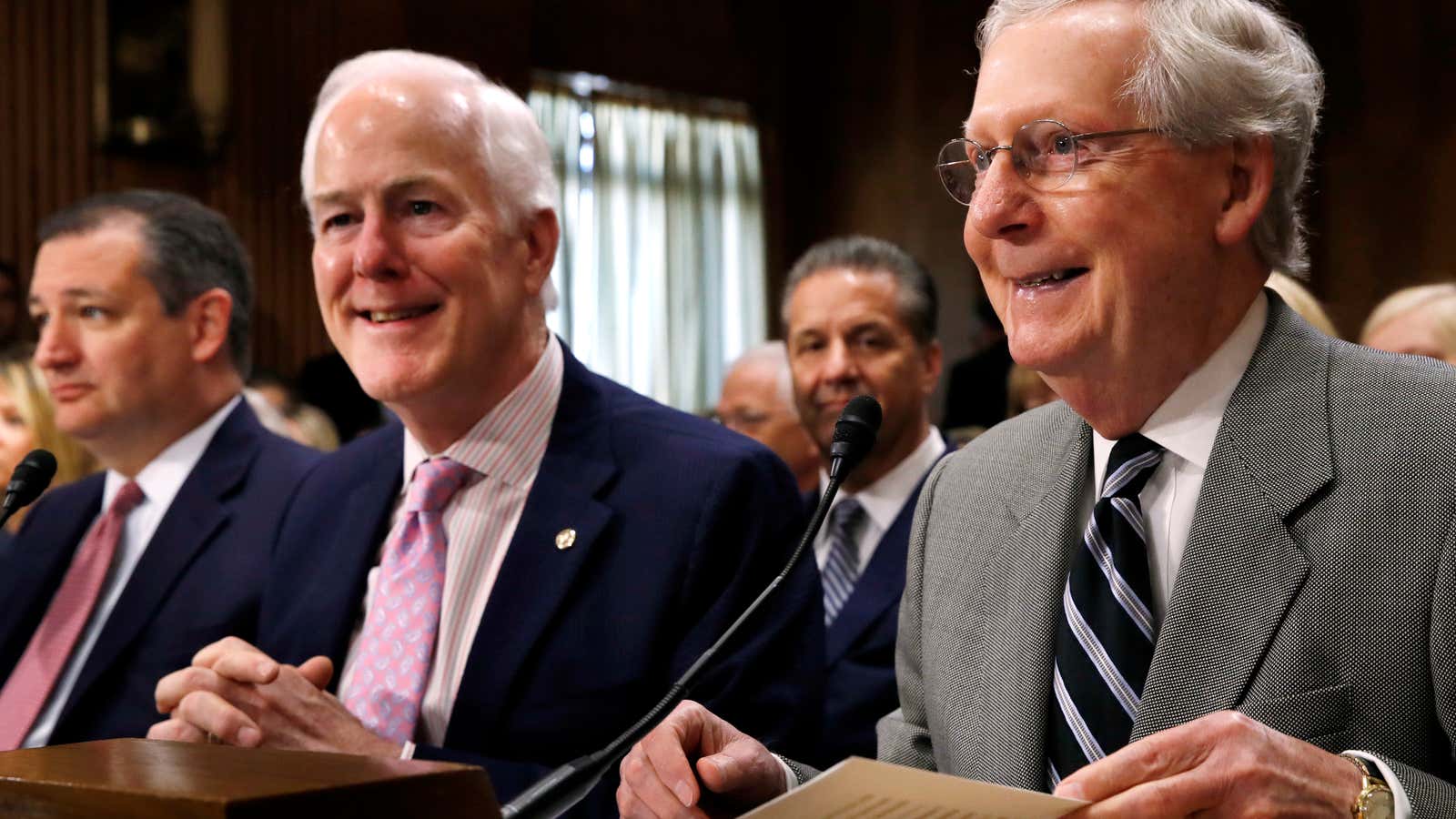As protestors shouting “shame” were hauled from the chamber, the US Senate voted this afternoon to open debate on a health-care law few of its members can explain.
The procedural vote revitalizes Republican efforts to deliver on Donald Trump’s promise of a health-care bill that replaces his predecessor’s Affordable Care Act. Yet rarely has such an effort to win votes been expended without those voting knowing what they were voting on. It is not clear which versions of the bill legislators will ultimately be debating, and none of the options have been scrutinized in any public committee hearings. Votes on different forms of repeal legislation, some of which is still being written, are expected in the days ahead.
Indeed, the motion to debate a bill was able to pass only thanks to an extraordinary tie-breaking vote by vice president Mike Pence. Republican senators Lisa Murkowski and Susan Collins both opposed the motion, alongside all the Democrats and independents.
Various versions of the health-care law written by the Republican leadership have been scored by the Congressional Budget Office; all share a rubric that would cut health-care spending on the poor and taxes on the rich, while ending the requirement that all Americans obtain health coverage. Most analyses say this will mean fewer insured (the project number varies little from bill to bill) and higher out-of-pocket costs, particularly for Americans who purchase individual insurance. The proposals remain exceedingly unpopular in opinion polls.
Today another new option emerged, the so-called “skinny bill” that would target just a few unpopular provisions in the law, but likely cripple the health insurance market.
Republican leadership portrayed the vote as the only way to signal support for repealing Obamacare, a key political target for conservative politicians since it was passed seven years ago. Yet it’s proved tough to manage an overhaul that touches one sixth of the US economy. Republicans from states with large populations benefitting from Obamacare, including rural states where the programs subsidize local hospitals, have balked at the huge cuts to Medicaid. But several skeptical Republican senators—notably Ohio’s Rob Portman, Nevada’s Dean Heller, and West Virginia’s Shelly Moore Capito—voted “yes” today to open the debate despite having voiced opposition to the bills themselves.
The prospects for all the bills proposed so far remain dicey. Wooing moderates and conservatives at the same time has proven a difficult tightrope for Mitch McConnell, the Senate majority leader, to walk. But the amendment process and ticking procedural clock may allow him to twist arms and win votes.
Democrats, meanwhile, are salivating at running against Republicans who backed the unpopular repeal program. “Turn back now, before it’s too late,” the Senate minority leader, Chuck Schumer, warned, saying that Democrats were prepared to work with Republicans on improving Obamacare without repealing it.
